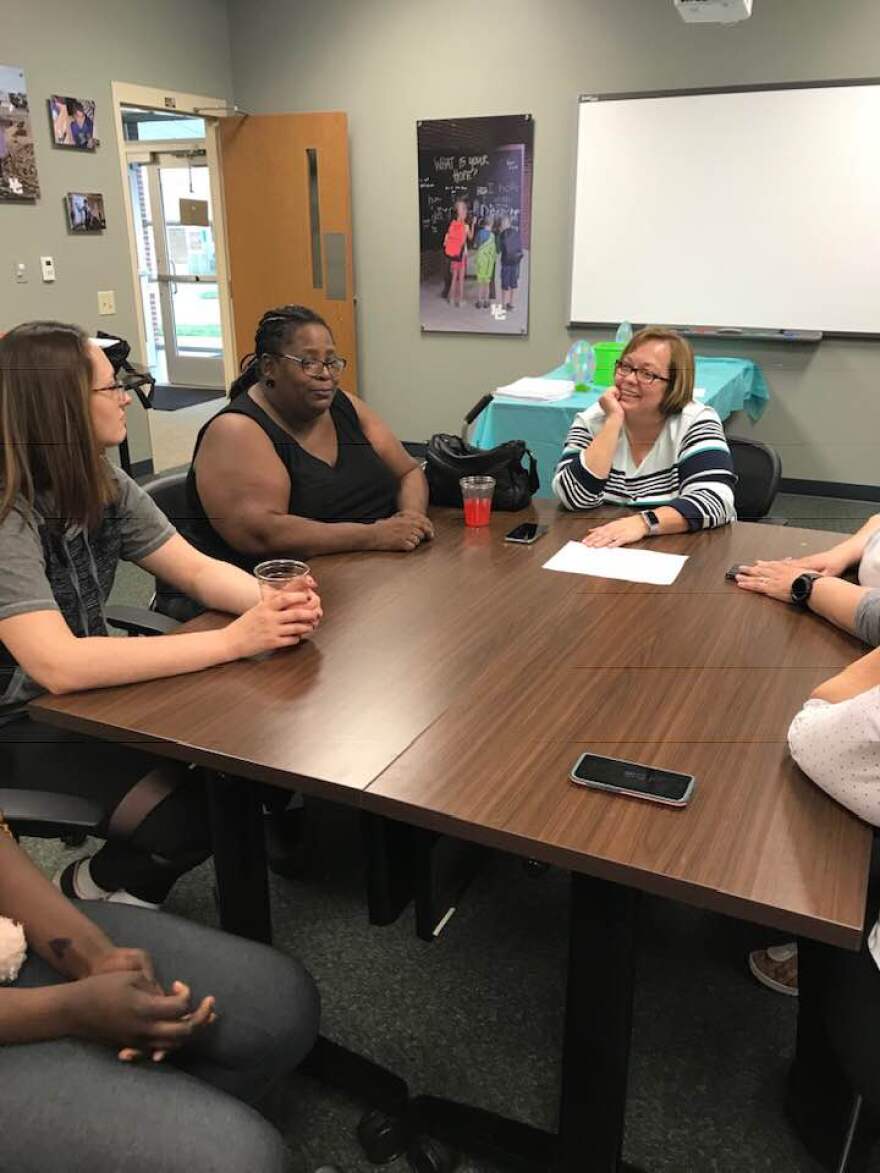Kentucky has the highest rate of children being raised in kinship care situations in the nation.
Kinship care means a child is being taken care of by a relative other than a parent. Most of those relatives are over the age of 50, and many of them struggle with their health and live on fixed incomes.
Some 96,000 children in Kentucky are being cared for by kinship providers or close family friends known as fictive kin.
In the first of a two-part series of reports on the state of kinship care in Kentucky, we have a look at one western Kentucky school district that's doing what it can to help kinship families get through the new normal.
'Two Trips Everywhere"
On a Thursday afternoon in April, Camille Wells of Henderson greeted her two nieces as they got off the school bus.
“How was your day, Jazzy?," she asked. "Did you have a good day, Bella?”
Eleven months ago, Wells took in her two nieces, ages 11 and 13.

"Their mom contacted me to let me know they were homeless, and she didn’t have anywhere to go with the kids," Wells explained. "I asked her to bring the kids to me and they could stay with me until she got a place and got on her feet.”
Camille and her husband have four biological children, ages one, four, 17, and 19.
"It’s been crazy making space. Our house, our car was built for the family size we had. For a long time, we had a sedan that seated five, and then we had a baby, and a few months later, my nieces came. It was two trips everywhere," Camille said. "We're just trying to make time for everyone and making sure my nieces are treated just like my children.”
This labor of love is on display at homes throughout Kentucky where six percent of children are being cared for by relatives other than their parents. While some have lost parents to death, a majority of the children have parents incarcerated.
Noticing a rise in the number of kinship families, Melissa Walker helped start a support group this school year for grandparents and other relative caregivers in Henderson County.
“Seeing them struggle and seeing them succeed, and seeing the commitment they have was the drive behind the passion to want to bring them together," she said.
Walker is the Family Resource Coordinator at East Heights Elementary School in Henderson. Each month, she gathers a dozen or so families and their children for a meal and fellowship. On a recent Thursday evening, Walker greeted kinship parents and their children who have come to the "Relatives as Parents" support group in Henderson County for one of the final meetings of the school year.
“I love you, and I’m so glad you’re here," Walker said as she hugged one of the children. "Are you hungry?"
Hey mom! How are you?," she asked one of the parents. "How’s your job going?"
The support group lets kinship families share their struggles and educates them on where to find assistance with food, clothing, and other essentials. Walker also brings in guest speakers to address many of the issues facing today's generation.
One of the regulars at the support group is Christine Mays, who took in her six and eight-year-old grandsons whose parents had a history of unemployment, domestic violence, and drug use. Mays said a lot has changed since she raised her children.
“Technology definitely. You have your Youtube, and Netflix, and tablets, and iPhones, and iPads, and all that stuff. School is a lot different as far as homework.”
Annette Shirley is raising two grandchildren, a great niece, and a non-relative child. She has benefitted from the support group’s discussions on Internet safety.

"People can go on social media and look you up, find out where you live," comments Shirley. "It’s really scary."
Annette’s husband John enjoys talking to other older adults who can relate to the challenges of kinship care.
“Sometimes you feel like you’re in a world all by yourself," he says. "Getting the emotional support reinforces the fact that you’re not all by yourself.”
Tonight’s topic is nurturing and attachment. The group paired off into two teams at different tables. Walker prepared a list of questions to open up discussion.
"How do you engage your child or teen in everyday activities?," she asked.
"It’s easier with children than teens to get them engaged, because they want to be recluse, they want to be in their phones, in their space locked in their rooms," answered Camille Wells.
"What about dinner? Do you try to get everybody together for dinner?," asked Walker. "I know it’s hard, but that’s just something we’ve always valued. My husband works odd hours and it’s hard, but yet, I still believe that those that dine together stay together.”
While support groups like this help provide for the physical and emotional needs of kinship parents, financial support can be harder to obtain.
We'll explore the financial burdens kinship care places on families in part two of this series, including efforts by Kentucky advocates to get increased support for all kinship caregivers in the commonwealth.











